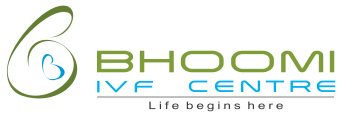SERVICES
ASSISTED REPRODUCTIVE TECHNIQUES
Intrauterine Insemination is a simple procedure of placing treated sperms directly into uterus. It is done using a syringe and a very thin catheter during egg releasing time of female fertility cycle. It is an outpatient procedure for patients who may have poor quality sperm, sperm-cervical mucus hostility, or for unknown causes of failed conception after repeated natural attempts.
In-Vitro Fertilization is a process where fertilization takes place in a Petri dish that is outside human body. Since the birth of first “test tube baby” in 1978, IVF has been constantly developed and refined. This procedure involves stimulation of ovaries, removal of mature eggs, and put them together with husband’s specially prepared sperms. Then the fertilized eggs are cultured in a special culture medium for 3 to 5 days in an incubator before transferring in to the uterine cavity.
Intracytolpasmic Sperm Injection is an additional procedure can be used as part of IVF when men’s sperm quality is poor due to various regions. Following egg retrieval, a single sperm is injected in to each egg.ICSI, also referred to as microinjection, thus mimics the natural process in which a sperm penetrates the egg. The resulting embryos are cultured for 3 to 5 days then transferred in to uterus of the patient.
It is a procedure where sperms are directly aspirated from testes with a very thin needle or making a very small incision under local anaesthesia.This is done to facilitate ICSI when there is very poor sperm count due to obstruction or other infertility issues in men.
Carefully selected best embryos are transferred to uterus on third or fifth day of cycle under ultrasound guidance. Usually two or three embryos transferred at once. Previously cultured and frozen embryos are transferred after properly thawing.(FET-Cycle).
It is a process of preservation of egg, sperm or embryos for future use. The process involves treating with special media and submerging them in liquid nitrogen at a temperature of minus 196 degree Celsius in cryo cans. Egg freezing is the most viable option for fertility preservation in women who require chemotherapy or radiotherapy for cancer treatment. Embryo freezing is routine option when excess embryos are available.
Blastocyst (day5) is an embryo grown in lab till blast stage and transferred to uterus or frozen for future transfer.Blastocyst culture and transfer lowers the risk of multiple pregnancies and increases pregnancy rates.
ANDROLOGY SERVICES
Andrology is all about evaluation and treatment of the male partner for infertility or sexual problems.40-50% of couples who have difficulty in conceiving have a contributory male factor. There may be simple coital difficulty to severe sperm abnormality.
Semen analysis is most important test for assessing male fertility. The test will help in finding the number, motility and morphology of sperm in semen. Based on these vital information treatment modalities can be planned.
This is the commonest sexual problem affecting men. About 30% men, both young and elderly have some degree of erectile dysfunction.The psychological impact of this impotence is bad and many men suffer in silence. There are many causes for ED and it is advisable to evaluate early.
This is a condition where men experience unintended ejaculatory response with minimal stimulation leading to unsatisfactory sex and frustration for the individual and couple. This has to be handled sympathetically and couple therapy is important.
DONOR PROGRAM
Carefully selected, quarantined and tested donor sperms are used with the consent of both partners for either IUI or IVF treatment in following conditions.
1. Total absence of sperm.
2. Male partner is having genetic or sexually transmitted disease.
3. Semen is very poor even for ICSI.
4. Women do not have a partner.
This involves the use of eggs from carefully selected and tested women with proven pregnancy for fertilization with the sperm of patient’s husband to produce embryos. This is recommended in following conditions.
1. Women not producing any healthy eggs.
2. Young women with reduced ovarian reserve, e.g. premature ovarian failure.
3. Women With hereditary disorders.
4. Women whose ovaries have been removed surgically.
Donor embryos are used when both partners unable to produce healthy sperm and egg.
This is an arrangement in which women (surrogate mother) carries and delivers a child for another couple or person. It is recommended in case of female infertility or when medical conditions make pregnancy and delivery risky or otherwise impossible.
DAY CARE PROCEDURES
Uterus is where pregnancy happens. It is essential and very important to know the uterine condition before going for IVF treatment. The procedure involves looking into the uterine cavity by endoscope under General Anesthesia. The procedure helps to know any abnormalities like septate uterus, polyps, sub mucous fibroids which can be operated immediately in the same sitting as daycare procedure.
Many pelvic and reproductive organ diseases in women prevent natural pregnancy to happen. Laproscopy is highly skilled minimally traumatic day care procedure done under General or Spinal Anesthesia. Conditions like Cysts of ovary, Endometriosis, Hydrosalphinx, fibroids and Tube blockage can be diagnosed and treated.
Varicocele is enlargement of veins of testicle and scrotum. This problem in males can cause decrease in sperm count, decrease motility of sperms and increase in abnormal sperms. In the long run varicocele can cause shrinkage of testicles (Testicular atrophy). Among infertile couples 35% of men have varicocele. Open surgical ligation of varicocele is a simple day care procedure done under spinal or general anesthesia.

